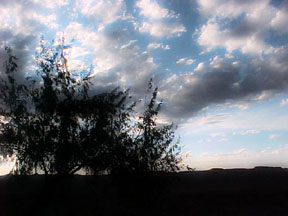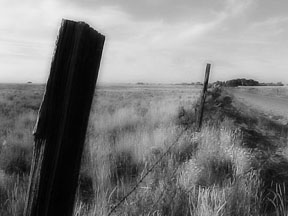|
|
|
| The references to remarks, actions, and ideas of famous people are real. The story itself is completely fabricated. |
|
out there
|
|
One of the implied meanings of "out there" pertains to thinking. Many times, it is meant as a compliment for clever people who are able to push the envelope of thought in a constructive way that although unorthodox, turns out to be very useful and beneficial. History is littered forward thinking people who were though to have gone around the bend. Nehls Bohr, who was a spokesman for the point of view that although the universe exists around us in a plethora of mathematical precision, that the math for the likelihood of future events is utterly chaotic, and unpredictable. This would be an example of someone who was out there, but whose thinking was ultimately beneficial to the rest of us. |
 |
 |
Another of the implied meanings involves the thinking and behavior of those who seem to be tuned to alternate frequencies, for those whose thinking is both unorthodox, and ultimately, not particularly beneficial or useful to much of any one. "That guy," a person might say, "is totally out there." Meaning that in effect, the person is nuts. |
|
Colloquially, it is often said of people who are rambling on while under the influence of marijuana, that they should be ignored as, "like, he's just totally out there." Have I mentioned artists yet? Was that really even necessary? That you are here? This was an implicit point of the current muddled dialog. I persist. |
 |
 |
And in terms of attempting to understand meaning, what direction is "out" anyway? The implication of pronoun positioning, is the "out" is the inverse, or opposite of "in." If you are in the house, you can go out. That being the case, what exactly is it that we are in, from whose perspective traveling elsewhere means to go out? Out from being in where, exactly, I wonder? When I was a kid, we said that astronauts and space men were traveling way out there, with the implied "in" being inside the atmosphere, or within the gravitational control of the earth. Out there in this context, would mean outer space. Which may bring us back to the John Mclaughlin thing, but on a more quantum physics sort of way, so never mind. |
|
Which brings us back to thoughts regarding point of view -- That the point of view of someone who is "out there" is neither the oracle of some kind of genius, nor the tragedy of some form of supreme foolishness, but rather, a point of view outside the envelope itself. Such a point of view might be the point of view of a god, or a space traveler, or some kind of sentient awareness existing separate from what we perceive from our point of view in the three dimensions of our universe that we can see. |
 |
 |
Then again, you've got your artists. |